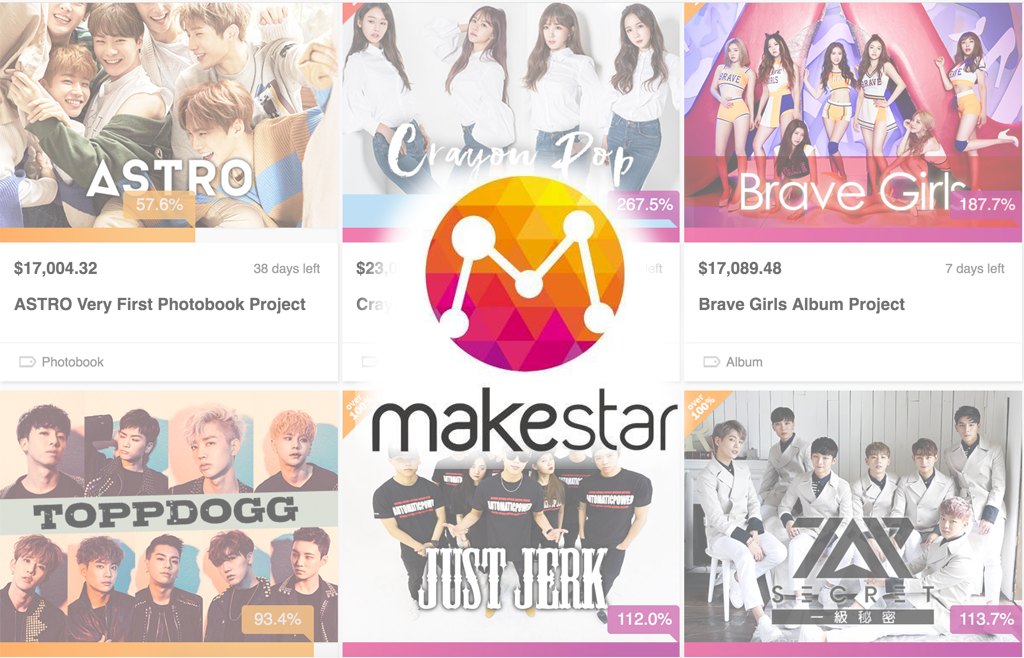Astro ‘Dream Pt. 02’ Album Review
The boys of Astro have done it again. With the release of their fifth mini album Dream Pt. 02 at the beginning of November, they have proven that it’s possible to fall even more in love with them.
In many ways, this latest album marks a transition into a more mature concept for the group. A follow up to Dream Pt. 01, released earlier this year in May, Astro exhibited a more cutesy and boyish concept, as demonstrated by the album cover displaying a pastel sweet shop and the track list being released as a drink menu. But when the teaser images for Dream Pt. 02 were released, there was an obvious difference. In contrast, the new album cover showed six desks and six different colored books to represent each member, suggesting a studious concept. Additionally, the boys’ solo shots also exhibited maturity through their intense gazes and darker colored attire. The wardrobe shift used throughout the album imagery is largely a reflection of the change in weather, but it is also a representation of the change in concept. Whereas, the wardrobe for Dream Pt. 01 consisted of light-colored summertime button-ups, the wardrobe for Dream Pt. 02 consists of dark-colored suits and turtlenecks.
The maturity continues with the music, too. Right from the start, the listener’s attention is captured with the catchy opening notes of “With You.” Being the lead vocalist, it only makes sense that Moonbin’s smooth voice begins the song and entire album. The track begins relatively slow-paced, with Moonbin promising his undevoted attention to his love interest. An obvious transition begins when Sanha comes in, describing the girl’s beauty, and the song’s tempo quickens, building hype in typical Astro fashion. Right before the chorus, MJ comes in, his voice reaching ridiculously high notes, taking this song, as well as the boys’ skills, to new heights. Halfway through the chorus, there is a pause, strategically creating anticipation for what comes next, and the beat drops with all members coming in singing “with you.” Although the use of “with you” can be repetitive, this track does a good job creating an upbeat and fresh introduction to the album and their new concept. Whereas in Dream Pt. 01, the boys dreamed of the girl, “With You” demonstrates the bold move the boys take in already imagining themselves with the girl.
Also on KultScene: Red Velvet’s ‘Peek-A-Boo’ song & music video review
The next song on the album is the title track “Crazy Sexy Cool,” which really demonstrates the act’s matured sound. As opposed to the cheeky smiles and boyish energy Astro exhibited in their last single “Baby,” the boys exude a mature charisma in “Crazy Sexy Cool” with their new, smoother sound, making this a perfect choice for their latest comeback. As the title suggests, this song gives off a “cool” vibe with its slower, but still relatively upbeat, tempo and the boys’ falsetto voices. The smooth tempo of the song reflects the lyrics as they describe the irresistible charms of and chemistry they have with the dream girl. Eunwoo’s distinct and clear voice is especially showcased as he begins the chorus, hitting all the high notes and making listeners swoon.
The music video for “Crazy Sexy Cool” also demonstrates a stylistic change; it begins with a very peaceful scene of the boys sleeping and possibly dreaming, accompanied by a lullaby in the background. The calm is interrupted by a series of loud noises, startling the boys awake to a scene of themselves as the music starts. As always, Astro’s insanely exceptional but underrecognized dancing skills are showcased in the video, and it seems like their skills have only improved. With their crazy footwork and incredible ability to stay in sync, Astro leaves us in awe of the ways they are able to move their bodies. The overall vibe of the video is “cool” and more mature than “Baby,” as demonstrated by intense and piercing gazes that are unexpected yet seductive at the same time, catching us off guard in a good way. However, the boys still occasionally exhibit some of their classic cheeky smiles, reminding us that it is indeed, Astro.
Also on KultScene: 6 Highlights from BewhY’s ‘The Blind Star’ Los Angeles stop
Following the “cool” concept, the next track “Butterfly” carries with it a similar vibe. This song has a huge build-up, beginning as a muffled track with the audio slowly but surely clearing up. This time, Eunwoo begins the song with a “Hey girl” so smooth that it makes hearts melt while demonstrating how his voice has evolved to a more charismatic sound. Throughout the song, the boys compare the girl to a butterfly, cautious and afraid that at any moment, she will fly away. Their caution is reflected in the pre-chorus, as the tempo slows down to a steady beat before picking back up in the chorus. After the chorus, Rocky swoops in with his low husky voice, rapping about the effects this girl has on him and asking her to stay with him. Towards the end, we see a perfect pairing of JinJin and MJ, with JinJin rapping his feelings while MJ’s sings his signature high notes in the background to complement the rap. The caution that is shown through the lyrics and instrumentals exemplify how the boys have matured in the way they approach love. Instead of a carefree attitude, they recognize potential complexities and approach it accordingly.
Starting with “Run,” the album shifts to a more affectionate tone. The song opens with some smooth vocals and a muffled beat that slowly transitions to an intimate guitar melody. Sanha opens by singing about a dark evening sky, matching the serenity created by the acoustics. In a style that’s becoming quite characteristic of this album, the music pauses again before the chorus, allowing the listener to reflect on the lyrics that were just sung, before diving right into a catchy chorus. Eunwoo leads the first chorus this time, his sweet voice so filled with an intensity that convinces the listener of his earnest pursuit of the girl. After one more repetition of the impassioned chorus, the song ends similar to how it began — with a fading vocal and closing with just the melody of a guitar. This track, in my opinion, is the highlight of the album. It demonstrates how the boys have grown to be more intentional and sincere- each conveying his love and determination in his own way, through his own vocal style. I’m going to be real honest and say that when I listen to this song, I almost want to cry because of how sweet and sincere it is.
The concluding track of this album begins with a piano solo, signifying a more ballad-y tune. It makes sense for the last song to have the slowest tempo as throughout the album, we have seen a gradual decrease in pace. Eunwoo begins this track by singing about a lost love, which explains the more reflective nature of the song. When MJ comes in after Eunwoo, the pain in his voice of being separated from his love is clearly heard. After the chorus, JinJin comes in with a rap but it is less energetic than his previous rap from “Butterfly,” mirroring the regret he feels for not treating his love well. However, his rap picks up speed and his voice gains more energy as he describes how he will change and pursue his love again. In fact, I feel as if the entire song gains more energy as the boys sing about the lessons they learned and the hope that their love will be rekindled. The song ends with the piano solo we heard in the beginning, however, after the increasing passion of the song, the listener now interprets the tune of the piano solo as hopeful instead of sorrowful. This song makes for a perfect conclusion to the album as it illustrates the hope that comes with maturity and growth. Because of the lessons and experiences the boys have gone through, they are able to approach love in a new, refined way as reflected by all the songs on the album.
This entire album sticks to the concept of Dream very well and is a perfect representation of how the band has grown since their last album: the boys of Astro go from dreaming of a relationship with their love interest to singing about their dream girl to reflecting on a former love that they dream of rekindling. Every member shows incredible vocal growth and the rich combination of their unique voice creates emotions that the listener can’t help but feel themselves. Even the lyrics and messages conveyed show a more matured way of thinking. The album begins with a high energy that gradually simmers down to a contemplative song of hope. For Astro, it may be a closing song hopeful of the future of their love life but for fans, it’s a song that teases them with what’s to come from the next album from these talented boys.
What do you think of Astro’s latest album? Let us know your thoughts in the comment selection below! Be sure to subscribe to the site and follow us on Facebook, Twitter, Instagram, and Tumblr to keep up with all the K-pop news.



